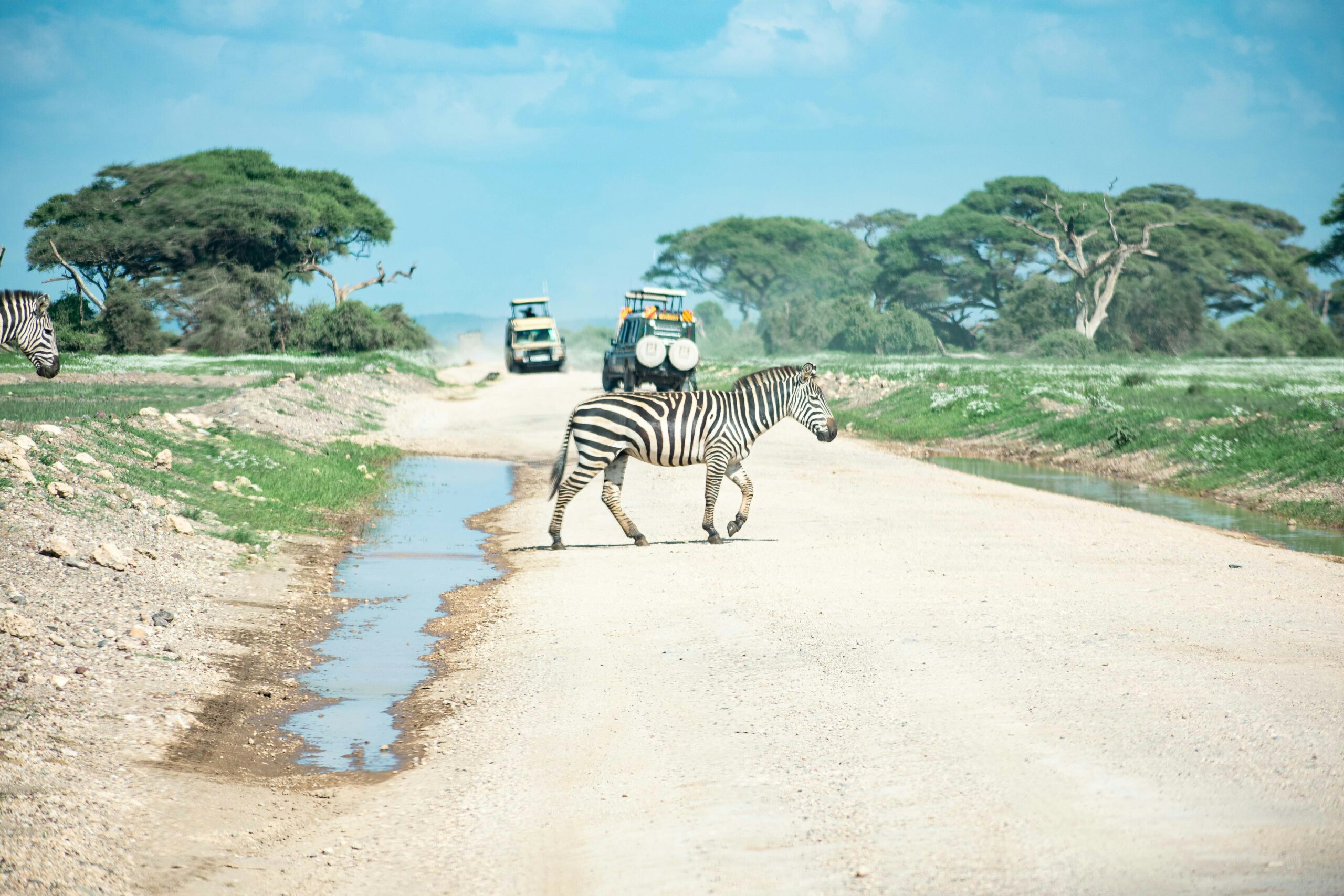
Photo by Brian Kungu on Unsplash
Safari Tips: Enjoy Safaris Without Harming Animals or Their Habitats
greensafariguide.com
12:03:25 March 15, 2024
Wildlife-Friendly Safari Tips: How to Enjoy Safaris Without Harming Animals or Their Habitats
Safaris are an incredible way to connect with nature and witness some of the most majestic animals on Earth in their natural habitats. However, as eco-tourism continues to grow in popularity, it’s important to ensure that our actions as tourists don’t disrupt these delicate ecosystems or harm the animals we’ve come to admire. A responsible, wildlife-friendly safari is not only about getting the best photos but also about respecting the natural environment and leaving as little impact as possible.
Here are some essential tips for enjoying a safari in a way that is mindful of wildlife and their habitats.
1. Choose Ethical Safari Operators
The first step in ensuring your safari is wildlife-friendly is to choose an ethical and responsible tour operator. Safari operators should follow guidelines that prioritize animal welfare, sustainability, and local community support.
What to Look For:
- Eco-Certified Operators: Choose companies certified by organizations like the Global Sustainable Tourism Council (GSTC) or Fair Trade Tourism. These certifications ensure the operator adheres to strict environmental and social standards.
- Community Involvement: Safari operators that work with local communities often support conservation efforts and wildlife protection.
- Conservation Contributions: Look for companies that actively contribute to conservation programs, whether through funding or volunteering in wildlife protection initiatives.
By selecting an ethical operator, you can be sure that your money supports the protection of wildlife and the preservation of their habitats.
2. Respect Wildlife Viewing Etiquette
While on safari, the golden rule is to observe, not disturb. It’s tempting to get as close as possible for that perfect shot, but it’s important to remember that you are a guest in the animals’ home.
Key Etiquette Tips:
- Keep Your Distance: Always maintain a safe distance from the animals. Getting too close can stress them out and disrupt their natural behavior. Your guide will inform you of the appropriate viewing distance, so follow their lead.
- Stay Quiet and Calm: Loud noises or sudden movements can startle wildlife, making them flee or become agitated. Speak softly and avoid using the car horn or making other unnecessary sounds.
- No Flash Photography: Flash photography can scare animals and even cause injury to sensitive species like nocturnal birds. Ensure your camera is set to avoid flash when taking pictures.
These small actions can help minimize your impact and ensure that animals continue to thrive in their natural habitats.
3. Stick to Designated Paths and Areas
Whether you’re on foot or in a vehicle, it’s crucial to stick to the designated safari routes. Off-roading or walking in unauthorized areas can damage fragile ecosystems and disturb animals.
The Importance of Staying on Path:
- Protecting Habitat: Driving off designated tracks can crush vegetation and disrupt the soil, affecting both plant and animal life. Over time, this damage can lead to erosion and the loss of key wildlife habitats.
- Minimizing Stress: Animals are used to seeing vehicles on designated paths, and venturing off these paths can make them anxious or aggressive. Sticking to the tracks helps wildlife feel secure.
By following the established routes, you’ll ensure that the ecosystem remains healthy and vibrant for future visitors.


4. Opt for Low-Impact Safari Activities
There are several ways to experience wildlife without causing harm. Traditional safaris in open vehicles are great, but low-impact activities like walking safaris and canoe trips offer a more eco-friendly and immersive experience.
Recommended Low-Impact Activities:
- Walking Safaris: Led by experienced guides, walking safaris allow you to explore the wilderness on foot, creating minimal disturbance to the environment and animals.
- Canoe or Boat Safaris: In water-rich regions like the Okavango Delta, canoe safaris offer a peaceful and environmentally friendly way to view wildlife. These trips typically use paddles rather than motors, reducing noise and pollution.
- Conservation Projects: Many lodges offer hands-on conservation activities, like tree planting or wildlife monitoring, giving you a chance to contribute directly to habitat protection.
These activities provide a closer connection to the environment while reducing the negative impact of traditional vehicle safaris.
5. Avoid Feeding or Interacting with Wildlife
It can be tempting to feed animals or encourage them to approach for a photo, but this can cause long-term harm. Feeding wildlife changes their natural behaviors and can make them reliant on humans for food. It can also lead to dangerous situations where animals become aggressive when they don’t receive food.
Why Feeding Animals is Harmful:
- Loss of Natural Instincts: Animals that become accustomed to being fed by humans can lose their natural ability to forage or hunt for food.
- Increased Human-Wildlife Conflict: Animals that associate humans with food are more likely to approach people, leading to potential danger for both the animals and the tourists.
To keep animals wild and safe, always resist the urge to feed or touch them.
6. Limit Your Plastic and Waste Footprint
Plastic waste is one of the biggest threats to wildlife worldwide. When on safari, it’s important to minimize your use of plastic and ensure that all waste is disposed of responsibly.
Sustainable Safari Practices:
- Carry a Reusable Water Bottle: Many lodges and parks have eliminated single-use plastic bottles, so bring a reusable one to stay hydrated.
- Leave No Trace: Follow the Leave No Trace principles by taking all your waste with you when you leave. Ensure that any trash you generate is properly disposed of at designated areas.
- Avoid Plastic Bags: Opt for reusable cloth bags instead of plastic for any items you purchase or carry on your safari.
By reducing waste, you help protect the environment and the animals that call it home.
7. Support Conservation Through Responsible Travel
One of the best ways to ensure that your safari benefits wildlife is to support conservation efforts. Many safari lodges and operators work closely with conservation organizations to protect wildlife and their habitats.
How to Contribute:
- Stay at Eco-Friendly Lodges: Many lodges use renewable energy, support wildlife rehabilitation efforts, and invest in local community projects.
- Donate to Conservation Projects: Some safaris include opportunities to donate to local conservation efforts, or even participate in activities like tracking endangered species or monitoring animal populations.
- Carbon Offset Your Travel: Safari destinations are often remote, requiring significant travel. Consider offsetting your carbon emissions through reputable carbon offset programs.
Supporting conservation-focused initiatives helps ensure that the animals and ecosystems you visit are protected for generations to come.
8. Educate Yourself About Wildlife Conservation
Understanding the challenges faced by wildlife and the importance of conservation can enhance your safari experience. Many lodges and safari guides offer educational talks or opportunities to engage with local conservation efforts.
Ways to Learn More:
- Attend Conservation Talks: Many eco-lodges host talks by conservationists or park rangers who can provide insights into the local wildlife and efforts to protect it.
- Read About Local Ecosystems: Before your trip, research the animals and ecosystems you’ll be visiting. Understanding the importance of biodiversity and conservation will give you a deeper appreciation for what you’ll see.
Being informed helps you make better decisions during your safari and enables you to become an advocate for wildlife conservation even after your trip ends.
A wildlife-friendly safari not only offers an unforgettable experience but also helps preserve the very landscapes and creatures you’ve come to see. By following these tips, you can ensure that your adventure is as eco-conscious and respectful as possible. Remember, every action you take as a traveler has an impact, so make sure it’s a positive one.
Enjoy your safari responsibly, knowing that you’re helping protect the natural world for future generations to enjoy.

